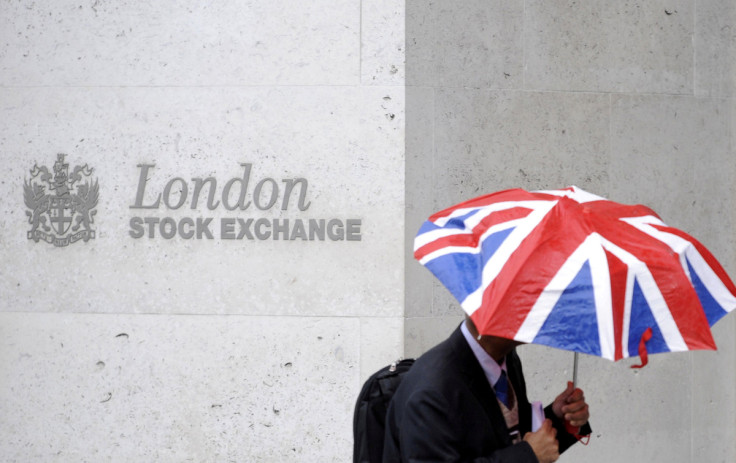City leaders in fresh bid to stem London Stock Exchange exodus
Against a backdrop of some high-profile departures from the UK stock market, a new Taskforce brings together various stakeholders to brainstorm solutions.

It is no secret that there are serious concerns around the future of the City of London as a global financial hub, as the London Stock Exchange suffers a string of high-profile departures.
An industry-led body, the Capital Markets Industry Taskforce (CMIT) commissioned a report last week to set out changes needed to breathe life back into London's capital markets.
The report, entitled "UK Capital Markets of Tomorrow" will be published following a conference on the topic in July, where the CMIT will welcome the views of stakeholders across the board, both from the City and government. The event will help inform and shape the report.
The core group which will produce the report includes Sir Nigel Wilson, Group CEO at Legal & General, Mark Austin, corporate partner at Freshfields, Penny James, Senior Independent Director at Hargreaves Lansdown and former CEO of Direct Line Group and Alex Hickman, Senior Managing Director at Teneo and former Special Advisor on Business to the Prime Minister, supported by CMIT.
The most significant sign of recent trouble in the City is perhaps the announcement in March this year by semiconductor design company, Arm, that it would not list on the London Stock Exchange.
Despite extensive personal efforts on the part of Prime Minister Rishi Sunak, Arm owner, Softbank, opted for a US listing for the British semiconductor company, which it acquired in 2016. It filed for Arm's listing on the New York Stock Exchange on 1 May 2023.
Arm is responsible for designing the chips found within 95 per cent of the world's smartphones – and therefore is considered the "crown jewel" of the British tech sector.
Prior to this, building materials giant CRH also announced it was switching its listing to the US. Gambling group Flutter expressed similar sentiments.
The recent news regarding oil giant Shell was also seen as a bad omen for the City. In February, it was revealed that two years ago, Shell considered moving its headquarters to the United States, before scrapping its dual UK-Dutch structure in favour of London.
It is against this challenging backdrop that the CMIT has made its announcement.
There have been attempts at reforms aimed at making it more attractive for companies to list in London. These include the Hill Review in 2020 and the more recent Edinburgh Reforms from December 2022.
Some of the salient points of the Hill Review were aimed at encouraging high-growth, earlier-stage companies to list. It reduced free-float requirements – the amount of a company's shares that are in public hands – from 25 per cent to 15 per cent. Instead, it allowed companies to use other measures to demonstrate liquidity.
Secondly, it modernised listing rules to allow for dual-class share structures in the premium segment of the London Stock Exchange. The changes gave directors – founders in particular –enhanced voting rights on certain decisions, with safeguards to maintain high corporate governance standards.
The Edinburgh Reforms represent a substantial package of regulatory and tax reforms. They advance a set of 30 policy initiatives designed to support the Government's vision for an open, sustainable and technologically advanced financial services sector that is globally competitive.
In the aftermath of Brexit, the initiative includes the transition of EU-retained law into the British regulator's rulebook. It also represents an effort to simplify the regulatory framework.
Some commentators are pessimistic about the efficacy of the reforms.
Speaking to The Guardian in March, Russ Mould, investment director at the AJ Bell platform, said: "So much for making London the go-to place for companies to list their shares. London Stock Exchange is having to work overtime just to keep those already listed, let alone attract new ones.
"Efforts to relax the listing rules to attract more companies to London come across as a bit desperate. It should be a badge of honour to list in the UK, but that reputation is dwindling fast.
"Overseas investors lost interest in the trading venue as soon as the UK voted in favour of Brexit, and valuations have got even cheaper. That's hardly a good sales pitch to attract more big companies to the UK market."
By contrast, Juliet Hogget, CEO of the London Stock Exchange and the Inaugural Chair of the CMIT struck a more hopeful tone last week, saying: "It is vital that we continuously look to develop the UK's capital markets to ensure that great companies can start, grow, scale and stay here and that our capital markets provide our pension and policyholders and savers with good returns and a prosperous old age.
"This new report will aim to provide an overarching framework that supports the future evolution of our markets and ensure they act as an engine supporting prosperity and economic transformation across the UK."
© Copyright IBTimes 2025. All rights reserved.



















